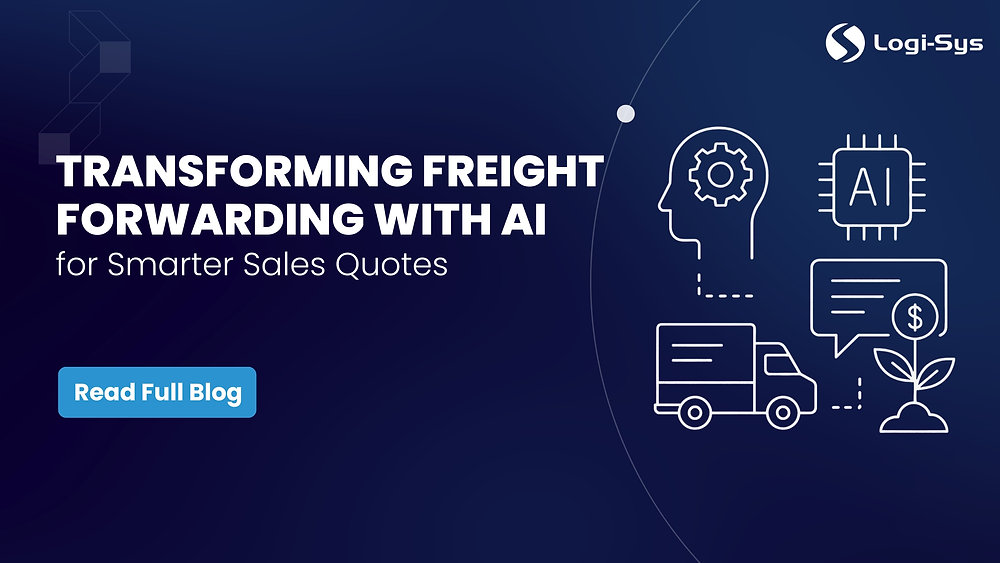
In the world of freight forwarding, the challenges of managing sales quotes from multiple carriers (sea or air) can be daunting. As businesses strive to secure lucrative contracts with shippers and consignees, the pressure to provide timely and accurate shipping rates is paramount. Fortunately, advancements in technology—particularly artificial intelligence (AI)—are here to revolutionize the way freight forwarders handle this critical aspect of their operations.
The Challenge of Managing Sales Quotes
Freight forwarders often juggle numerous sales quotes from various carriers (sea or air). Each quote may differ in terms, rates, and service quality. The manual process of sifting through these quotes can be time-consuming and prone to errors, leading to missed opportunities or incorrect pricing information being relayed to customers. As competition in the logistics industry intensifies, the need for an efficient and reliable system to manage quotes has never been more critical.
Enter AI: The Game Changer
1. Data Aggregation and Sorting:
AI systems can quickly aggregate vast amounts of data from multiple carriers. This automation enables freight forwarders to sort and categorize quotes based on various parameters such as price, shipping speed, and service reliability. Gone are the days of manually comparing quotes—AI does the heavy lifting in seconds.
2. Advanced Analytics:
AI algorithms analyze historical data and industry trends to provide insights that help freight forwarders make data-driven decisions. By identifying patterns and forecasting shipping rates, these tools empower businesses to optimize their pricing strategies, ensuring that they remain competitive in a fast-evolving market.
3. Real-Time Updates:
With AI, freight forwarding software can continually update shipping rates as new quotes come in or as carriers’ policies change. This real-time capability means that freight forwarders can always provide shippers and consignees with the most current and accurate information, enhancing customer trust and satisfaction.
4. Personalized Offers:
Advanced AI can also tailor offers based on the specific needs of shippers or consignees. By learning from past transactions and preferences, the software can suggest the best shipping options that suit a customer’s unique requirements and budget, ultimately increasing the chances of securing their business.
5. Streamlined Communication:
AI can facilitate smoother communication between freight forwarders and their clients. Automated messaging systems can notify shippers about new rates, ensuring they are always in the loop without overwhelming them with information.
Conclusion
As the freight forwarding industry continues to face challenges and opportunities, AI is emerging as a powerful ally. By enhancing the efficiency of sales quote management and enabling data-driven decision-making, AI-powered freight forwarding software is positioning businesses to thrive in a competitive landscape.
Fostering strong relationships with shippers and consignees while delivering timely and personalized services is now more achievable than ever. Embracing AI technology is not just an option for freight forwarders—it’s becoming a necessity in order to stay ahead in the fast-paced world of logistics and shipping.
For those interested in transforming their freight forwarding operations through the use of AI, now is the perfect time to explore the various software solutions available. With the right tools at their disposal, freight forwarders can secure more business and elevate their service offerings to new heights.
